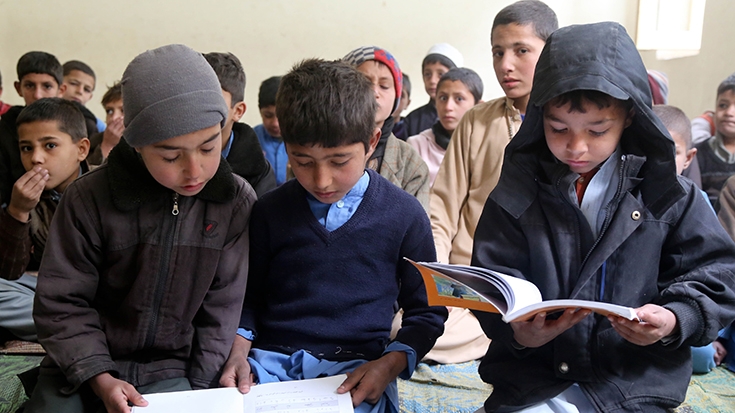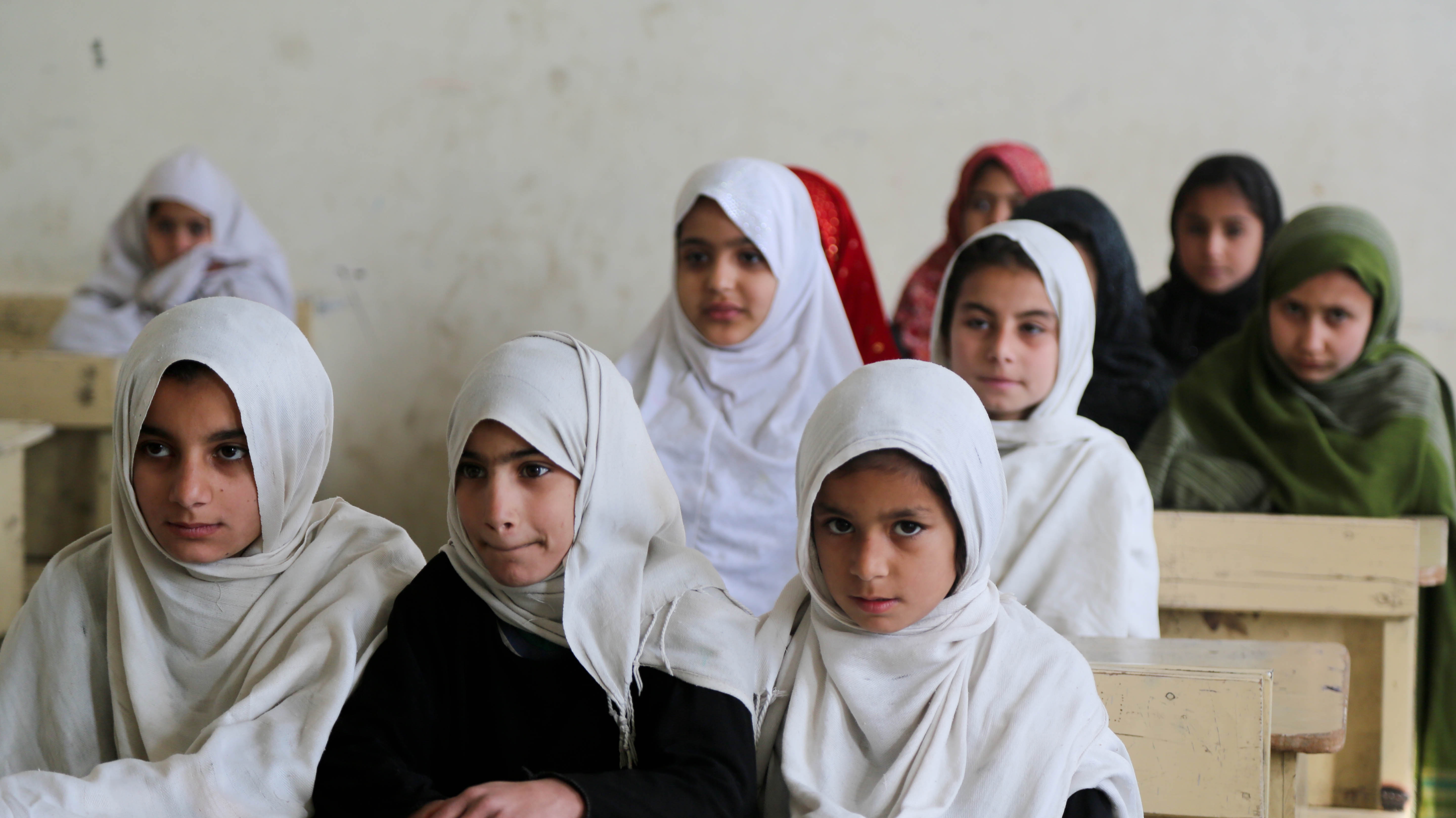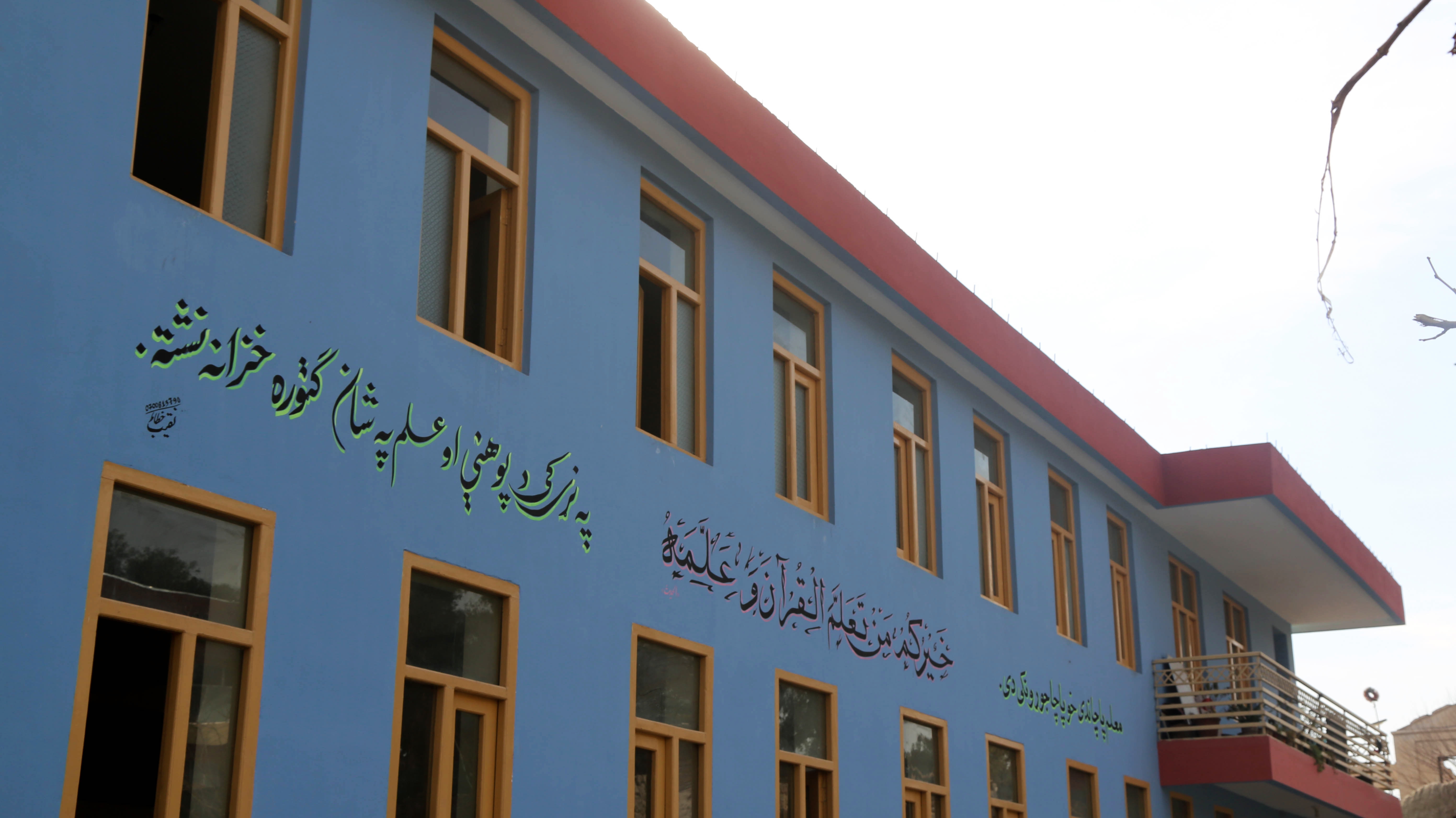JALALABAD CITY, Nangarhar Province – Not long ago, the 420 students of the Afghan Mena Elementary School had to study in an open lot because their school did not have enclosed classrooms. Today, students sit in classrooms in a two-story building in Jalalabad city, the capital of Nangarhar Province.
Zermeha, 37, mother of three children who study at the school recalls the uncomfortable conditions before the school building was built: “In the past, it was all sun and dust, and our kids were ill all the time,” she says as she waits at the school’s front gate to pick up her children. “Now we are very comfortable. I don’t have to worry anymore where my children will sit at school, how they can keep their clothes clean or what they can do to avoid catching an illness.”
Following the Bonn agreement and the establishment of the Afghan interim administration in 2001, hundreds of repatriating families settled in the Afghan Mena area of Jalalabad city. In 2007, the families decided to establish a school for the local population.
Haidar Shah, 57, the former principal of the school recalls: “In those days, it was only a school by name. We did not have any resources. It was open ground with no roof. We rented a storage facility nearby for $50 per month and stored our teaching materials there at night.”
But despite the limited resources, the school created educational opportunities for local children, who previously had to travel five kilometers to attend the nearest school. Currently, 1,407 boys and 1,043 girls study at Afghan Mena Elementary School, where 34 teachers (24 men and 8 women) are employed.



